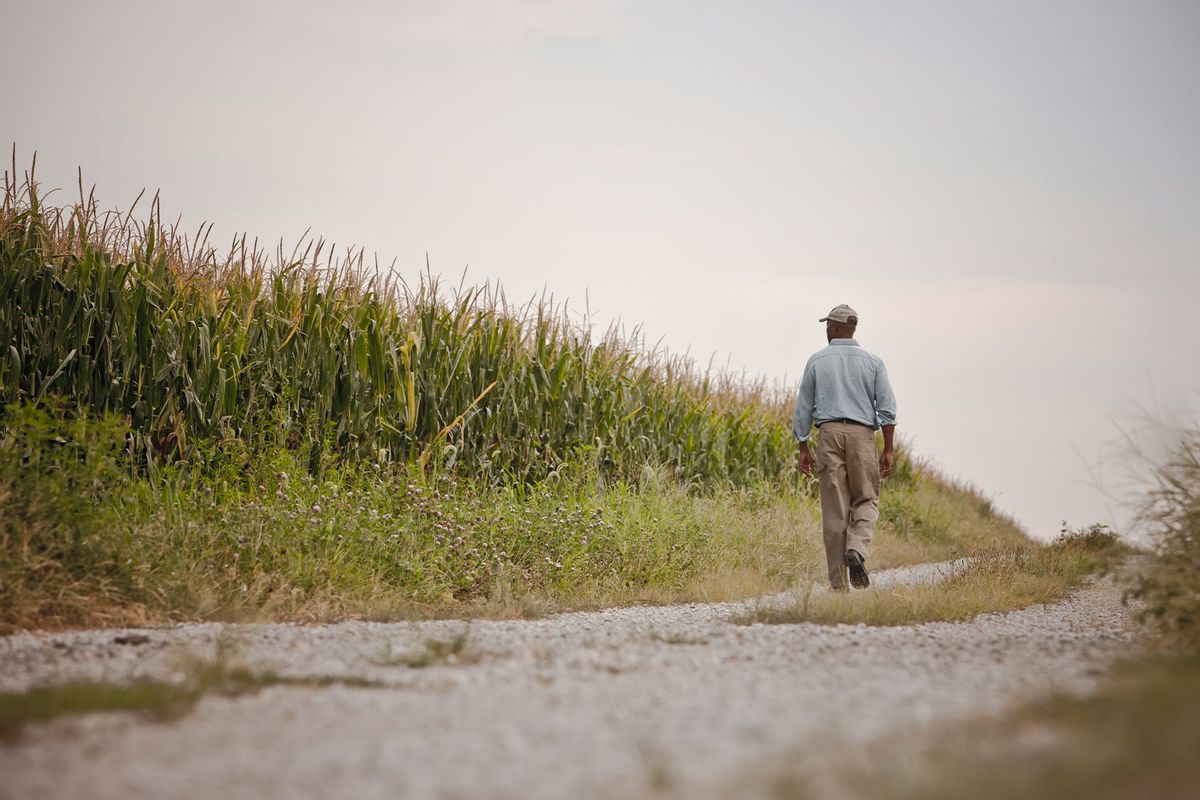The Biden administration made a historic $2.2 billion payout to Black and other minority farmers who faced loan discrimination from the US Department of Agriculture (USDA), marking a step towards reconciling a long history of Black-owned farmland.
The payouts were made to over 23,000 farmers across the country are an “acknowledgement” of the long and documented history by the USDA toward Black farmers, Biden said in a statement. Most went to farmers in Mississippi and Alabama and ranged from $10,000 to $500,000.
John Boyd, a fourth-generation farmer in Mecklenburg, Virginia and the head of the National Black Farmers Association (NBFA) says the payout is the result of decades-long fight from Black farmers and advocates across the country.
“This is a very historic win for me personally and for the National Black Farmers Association, because we were out front, leading the way and leading the charge to get these payments done,” he said.
Last week, JD Vance, the Republican vice presidential nominee, called the payments “disgraceful” on CBS “Face the Nation.” He said that Black farmers were given “special benefits” because of their skin color and said that the payouts discriminated against white farmers.
“The Harris Administration, for example, handed out farm benefits to people based on skin color,” Vance said. “I think that’s disgraceful. I don’t think we should say, you get farm benefits if you’re a Black farmer, you don’t get farm benefits if you’re a white farmer.”
Boyd said Vance’s comments are despicable and ignore decades of systemic discrimination towards not only Black farmers, but other farmers of color, women and LGBTQ farmers. “He took a low blow at the oldest occupation in history for Black people, which is farming, not taking into consideration how poorly Black farmers were treated,” Boyd said.
As a Black farmer in Virginia, Boyd experienced discrimination from his local USDA officer first hand in the 1980s. He said the local officer repeatedly refused to give him a loan, would call him derogatory names and would only meet with Black farmers one day per week while white farmers could come in for loans whenever they wanted, Boyd recounted.
He isn’t alone in his experience. For years, Black farmers have faced discrimination from the USDA and been denied loans and credit at rates exponentially higher than any other demographic, explains David Wheaton, an attorney with The National Association for the Advancement of Colored People (NAACP) Legal Defense Fund (LDF).
Throughout the 20th century, Black farmers lost an estimated $326 billion worth of land due to discriminatory lending practices from the USDA and the forced sale of Black-owned land, according to a 2022 analysis by The New Republic.
“When you lose $326 billion worth of land, that equates to $326 billion worth of wealth that could have been kept into black families and generations of black families down the line,” Wheaton said.
A variety of policies stemming back to the Great Depression have led to the decline of Black farmers and Black-owned farmland. The Agricultural Adjustment Act of 1933 allowed white landowners to keep government benefit payments instead of passing them onto Black sharecroppers who were actually farming the land. The USDA also excluded Black farmers the Federal Emergency Relief Administration and granted a disproportionate amount of funds to white farmers.
But USDA loan discrimination isn’t a just thing of the past. According to a data analysis by NPR, in 2022, the USDA granted direct loans to 36% of Black farmers who applied, the lowest approval rate of any demographic. 72% of white farmers were approved.
These discriminatory land practices have led to a significant decline in Black-owned farmland, which peaked in 1910 at around 16 million acres nationwide. Today, Black farmers own less than 3 million acres and make up just 1% of all American farmers.
While the payouts are a historic moment for many, Boyd says the payments “aren’t enough to address the historic discrimination” Black farmers have faced. On top of the $2.2 billion payout, there was another $3 billion in debt relief from the USDA that was supposed to be paid to “distressed borrowers,” but was repealed. Both Boyd and Wheaton of the LDF say those payments are essential.
“We really want those funds to be targeted to, you know, socially disadvantaged farmers and other farmers who are still struggling economically,” Wheaton said.
For Boyd, the ultimate goal is more Black-owned farmland. While he said he doesn’t want to “underscore the significance” of $2.2 billion, without land, you can’t farm.
“Our numbers are dwindling, and if we can’t get the land back, there’s nothing to farm, Boyd said.
Read more
about this topic
